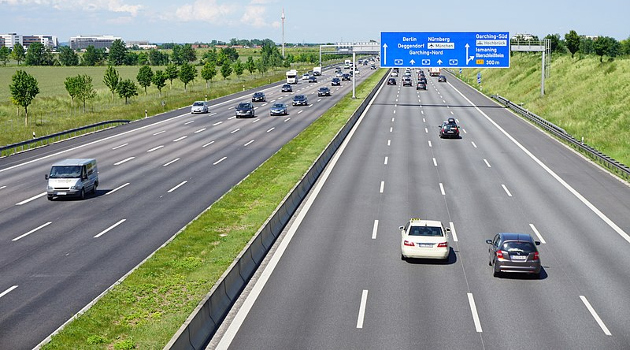Every so often, I share quirky examples of libertarian policy in places that generally are not associated with a laissez-faire approach to governance.
Today, we’re going to add Germany to our list.
According to a report by Car and Driver, the German Parliament voted – by an overwhelming margin – against a proposal by the Green Party to impose speed limits on the autobahn.
Auto enthusiasts in Germany scored a major victory yesterday as the country’s federal parliament, the Bundestag, overwhelmingly voted to to defy a motion by the Green Party that would have asked the government
to install a speed limit on the famous autobahn. The 80-mph limit suggested by the Greens would have effectively closed down one of the last roads where drivers can freely select their preferred speed. The autobahn is a defining factor in the perception of Germany abroad, but the topic is highly contested and politically charged at home. …The vote was 126 for a speed limit, 498 against, with seven abstentions.
The vote basically reflected a right-left split, though the Social Democrats tried to have their cake and eat it too.
…Green Party big shot Cem Özdemir claimed that roads would be safer with a speed limit, and he asked for German’s “special way” to be ended. …The post-communist Left Party volunteered that “electric mobility”
should mean more “trains and trams,” while the Social Democrats, who are in a ruling coalition with the Christian Democrats, argued that they would support a speed limit were it not for their obligations to the coalition. The centrist CDU, the center-liberal FDP, and the conservative AfD all argued against a speed limit.
For what it’s worth, the autobahn is actually quite safe.
The autobahn road system, situated in one of the most traveled places on earth, is extremely safe. Accident rates have fallen dramatically over the past few decades, and many of the remaining deaths can be attributed to factors other than speed. Today, the fatality rate is one of the lowest in the world. Those opposed to a speed limit argue that this could be due to the fact that due to the differences in velocity, drivers are alert, generally stay to the right when not passing, and tend to stay aware of their surroundings.
Having driven many times in Europe, I can state with confidence that they are better (and more polite) drivers.
Slow cars don’t loiter in the left lane on highways, and that’s true in France and Italy as well as Germany.
I’ll close with some good news.
…speed limits have gradually eased all over the globe. Austria’s limit has been provisionally raised to 87 mph on select stretches; Abu Dhabi allows 100 mph on sections of the road system, and many U.S. states are raising limits as well.
I’m old enough to remember the horror of a nationwide 55-mph speed limit (one of the many awful policies adopted during the Nixon years).
The limit was increased in 1987 and then – in a rare moment of federalism – the nationwide speed limit was repealed in the mid-1990s (among the many good policies of the Reagan and Clinton years).
Let’s hope Germany holds firm so they don’t ever have to worry about repealing bad policy.
P.S. The article also noted that, “It has been reported that in the summer of 1995, Germany chancellor Angela Merkel, then minister for environmental affairs, broke out in tears over Helmut Kohl’s refusal to mandate a speed limit on the autobahn.” Given Merkel’s statism, I’m not surprised.
P.P.S. Enviro-zealots want onerous speed limits because of their quasi-religious opposition to energy consumption. Politicians, by contrast, view speed limits as a tool for generating tax revenue (which is why I’ve applauded civil disobedience in Washington, DC, and Arizona).

